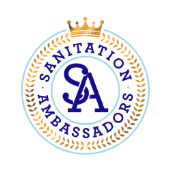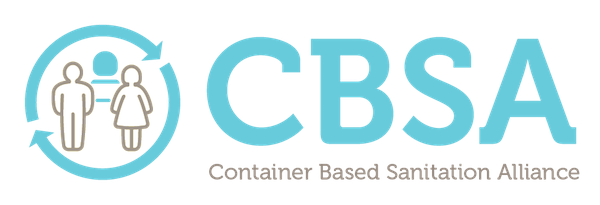
Irene Ochem is founder & CEO of the Africa Women Innovation and Entrepreneurship Forum (AWIEF), an award-winning, pan-African organisation dedicated to fostering women’s economic inclusion and empowerment through entrepreneurship support and development. AWIEF works to close the gender gaps in entrepreneurship in Africa. Since 2021, AWIEF enjoys Special Consultative Status with the UN Economic and Social Council (ECOSOC).
Irene is an entrepreneurship, trade, and innovation specialist. She holds bachelor’s and postgraduate qualifications from University of Nigeria, Nsukka (Nigeria), University of Trieste (Italy), University of Cape Town (South Africa), and MBA from University of London (UK).
Irene’s interest is focused on gender economic equity and social inclusion. She has 25+ years’ experience working across geographies of Africa and Europe, in international development, research administration management, enterprise development, and private sector growth. Her work at the strategic leadership of AWIEF is focused on driving female entrepreneurship, promoting enterprise and innovation, designing and implementing bespoke women-centred business support programs across different African countries, and mobilizing resources and partnerships.
Irene is the Founder & Convener of the prestigious annual AWIEF Conference and AWIEF Awards, Africa’s largest women entrepreneurship event platform launched in 2015 in Lagos. The AWIEF Conference is an international gathering of 1,300+ African and global entrepreneurship ecosystem stakeholders and partners, for dialogue on issues of women economic empowerment, entrepreneurship, investment, innovation, & technology in Africa.
Irene is passionate about helping women-owned businesses become more competitive and expand their markets having directly trained and supported 2,000+ female-owned startups across different African countries with diverse enterprise development and entrepreneurship capacity building programs. She has provided inputs to regional trade agreements on women economic empowerment and inclusion.
Irene is internationally known for her impactful work has received reputable recognitions and awards. She has been featured and widely profiled in prestigious national and international media platforms including CNN, BBC, SABC (South Africa), Channel Africa (South Africa), and Channels TV (Nigeria).
She writes, speaks, and participates widely in international meetings on business, entrepreneurship, trade, women, and gender. She serves on boards as Non-Executive Director.

Dr Bernelle Verster is passionate about dry toilets. It didn’t start that way; her research journey started in biotechnology and she had no idea where the stuff in the toilets went after flushing. Then she found wastewater when she was looking for cheap raw materials, which led to a PhD in bioprocess engineering on the topic of wastewater biorefineries.
This investigation led her to consider sanitation from cleaner production principles, including the need to separate at source and concentrate the nutrients. She discovered that even if all wastewater treatment plants work perfectly, we are not able to clean water enough to mitigate the damage to receiving waters.
Dry toilets are the only reasonable option, and urine separation the best compromise to get there. For dry toilets to work as a solution for everyone it needs to work well enough for the affluent; it needs to work well, and beautifully, full stop.
Philosophically, talking about toilets is also a way to start talking about what is hidden, what we are ashamed of, what is taboo. It is a way to talk about inequality, to have the conversation about equity, dignity, privilege. If rich people are not willing to use the most sustainable sanitation systems, how can we expect poor people to use it?
Bernelle is currently exploring opportunities in biotech, ranging across the bioeconomy, regenerative ecologies, waste to value, biotech’s role in water sensitive design and urban resilience, and with a special focus on integrating data visualisation, gamification and open source tech into biotech.

Trevor Mulaudzi is currently a Lecturer in the Department of Water and Sanitation at University of Limpopo, South Africa. His latest interests are in Toilet and Sanitation Modern Technologies Implementation as viable and Sustainable Sanitation and Water Management Businesses and is currently focusing all his research work on the development of Faecal Sludge Management and Valorisation of Urine Nutrients Business Plants which will revolutionise the outdated Wastewater Treatment Plant Technologies.
In modern Faecal Sludge Management and Valorization of Urine Nutrients Treatment Plants, all human waste will be recycled into valuable resources.
Trevor is a decorated Geologist and Gold Mining Engineer who abandoned and sacrificed his hard-earned university qualification for changing and improving the lives of the vulnerable South African school children who face the dire consequences of dirty and unhygienic school toilets on a daily basis.
Trevor has twenty 26 years’ experience in water and sanitation with emphasis on improving schools’ toilet hygiene. Through his efforts, and the School Toilets, Sanitation and Hygiene Improvement programs, children in South African schools are ensured a sound learning environment and education within hygienic school conditions.
This passion was inspired by chance in 1996, after meeting a group of pupils who had been loitering outside their school premises. It was during this year that he formed the Mc Trev Consultancy. The company offered two types of services. The first one was a School Hygiene, Toilet and Sanitation Improvement service. The second one was deep cleaning for high density work areas, accommodations, and ablution blocks. The deep cleaning business targeted the mining industries and universities and was contracted for cleaning change houses, hostels, kitchens and eating places for mineworkers and university students’ residential accommodation.
As a managing member of the company, he was responsible for ensuring that the company secured contracts for janitorial services which employed and motivated the staff of 500 full-time janitorial cleaners to deliver its contractual obligation in line with workplace laws of South Africa (the Labour Relations Act, Occupational Health and Safety Act, Mine Health and Safety Act, Basic Conditions of Employment).
He developed policies such as remuneration, leave and conduct that govern workplace and individualised contracts. Through his ability to create sound business relationships over the years, based on good communication and integrity, the program was awarded funding from Danish-DANIDA, Royal Bafokeng Nation, Unilever and Bloem Water.
His advocacy experiences have enabled him to engage with and promote the School Sanitation Programmes to the South African Departments of Education, Health, Water Affairs and Public Works. One of these is “Improving health and learning through better water, sanitation and hygiene in schools” adopted from WHO and UNICEF.
He is a member of the world’s biggest Toilet NGO, the World Toilet Association (WTA) and is currently one of the 4 Vice Presidents of the same World Toilet Association based in Suwon City, South Korea. His knowledge and experience on managing social businesses will be key factors to ensure the success of this organisation.

Trained as a Chemical Engineer, Dr Randall currently leads a team that is looking at novel ways to recover value from ‘waste’ waters. In 2018 he led the team that grew the world’s first bio-brick from human urine. He is an Associate Professor in Water Quality Engineering at the University of Cape Town and is passionate about the environment, sustainable sanitation processes and making a positive difference to society. He is a previous recipient of the prestigious Future Leaders – African Independent Researcher (FLAIR) Fellowship from the UK’s Royal Society.
He is also a recipient of the Institution of Chemical Engineers Warner Prize for “exceptional research in sustainable chemical
processes” as well as a Next Einstein Forum (NEF) Fellow. He has also been appointed by the Vice Chancellor of the University of Cape Town to run a Strategic Initiative on Sustainability, with the aim of making the university campus more sustainable.

Associate professor Jan-Olof Drangert worked up to retirement as a researcher and trainer in the environmental field and based at the Dept. of Water and Environmental Change, Linköping University, Sweden.
His research focus went from rural household water over to urban water and nutrient flows. He applies systems thinking incorporating environment and hygiene issues, resources conservation, technical and building aspects, and human impacts and perceptions.
He prefers to include historical experiences to grasp the evolution of water and sanitation conditions in order to deepen the understanding of what future may hold in store. He has published numerous articles about sanitation, phosphorus recycling, and water management.
Starting from a global resources perspective he studies local and household aspects of persistence and change of conditions and perceptions. The studies include case studies from Sweden and from other cultures. He has worked in East and South Africa as well as South Asia and is fluent in Kiswahili.
In addition to regular teaching at the department he has conducted water and sanitation courses at the University of the Western Cape in South Africa and Nanyang Technical University in Singapore. He was the Director of the 5-week international training programme Ecological Alternatives in Sanitation for ten years with more than 300 professional participants worldwide. From these experiences he developed a web-based training for professionals called Sustainable Sanitation for the 21st Century containing 700 animated slides and attached explanations and references. This can be downloaded for free from www.sustainablesanitation.info or akvo.org on the mobile.
He has developed a novel approach to use an “extended waste hierarchy” that includes both solid and liquid waste streams. The usefulness of such a hierarchy is illustrated by examples related to recovery of nutrient-rich liquid and solid waste from urban flows. Nutrients can be brought back to fertilise urban and farm food production. Water can be conserved and recycled by urban households. Conservation and recovery can prolong ten-fold the lifespan of food security and delay the transgressing planetary resources boundary by hundreds of years and provide 24/7 water supply without depleting surface and groundwater sources.
In an effort to try out new ideas about sustainable living he is engaged in building 24/7 eco-houses for energy, water and vegetables/fruits. Here, science, technologies and human perceptions are married into a system to produce a negligible ecological footprint while retaining comfort and good health. The houses serve as demonstration units to assist residents and builders in becoming less invasive on nature.

Sarah is a trained nurse and vocal advocate for women’s health and has spent several years educating people in disadvantaged communities about sexual and reproductive health issues.
Sarah’s experiences have inspired her to find solutions to the prevailing problem of “period poverty” — a term commonly used to describe the experiences of women and girls who do not have access to menstrual management products and hygienic spaces in which to use them because of their socio-economic conditions. She sampled a range of eco-friendly products and compared them in terms of durability, convenience and hygiene to come up with a clear winner: Safepad™.
This reusable pad is designed with anti-microbial technology to kill bacteria, thus preventing infections. During the years of working as a HIV nurse, distributing sustainable menstrual products and doing reproductive health sessions in schools, child and youth care centers, NGO’s, communities and so on, she engaged in many conversations with youth, staff and community members and kept hearing about the same issue; Our women and girls can not afford proper menstrual products, girls are staying home from school and work.
Girls are repeatedly getting infections, they are using rags, toilet paper, socks and so on. Teachers spending their own salaries to provide their students with pads. Access to menstrual and hygiene products to women and girls will address the critical need of our communities to stay healthy, clean and safe from infections. Work and school attendance is highly dependable on women and girls having access to privacy and basic proper facilities, allowing them to manage their period in a safe, confident and sanitary way.
The menstrual cycle is the most natural part of being female and these conversations keep pushing Sarah to do the best she can to alleviate the issue of period poverty and create awareness about it. Her purpose is to link people to products and processes that will contribute to building resilience and bring peace of mind to everyday life challenges.
Her mission is to make Safepad available to all women from all backgrounds, who stand to benefit from this innovative menstrual management product which is both hygienic and sustainable. No girl, no woman despite background, culture, race and religion should have to be held back from living out her daily purpose because of her period. Whether she is going to school, to work, staying at home, she should be able to manage her period comfortably, safely and hygienically.
Get in touch




